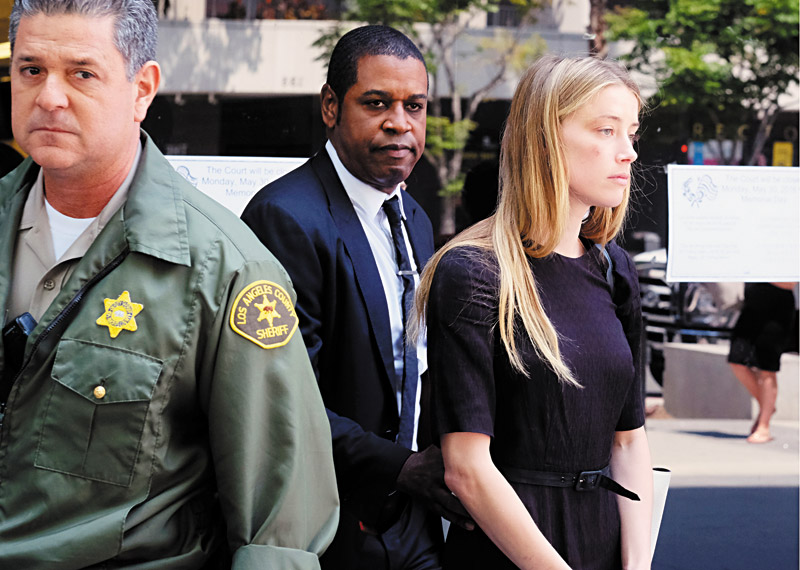The Truth About Gossip

Amber Heard’s court filing claims that Johnny Depp hit her in the face with an iPhone, hard enough to leave a bruise
AP PHOTO
A lot of people complain about the extensive coverage of celebrities in the media. “Who cares whether Blake Shelton and Gwen Stefani are going out or not?” you might demand. “Let’s talk about something that actually matters.”
The answer is that I care, very much. It looks like a marketing scheme (to promote The Voice), it smells like a marketing scheme, but we can’t quite prove it’s a marketing scheme and that’s why it’s so interesting. Everything about it reeks of promotion, and yet they really seem to actually like each other! Weird!
Or, more somberly, there’s the rapidly imploding Johnny Depp-Amber Heard divorce, where the narrative is being violently tugged in opposing directions since Heard’s revelation that Depp hit her in the face with an iPhone hard enough to give her a black eye.
Either she’s a lying, malicious gold digger eager for a fat divorce settlement, or he’s a powerful, abusive Hollywood man trying to discredit her. Both are fairly awful possibilities. Either way, it is possible that it affected both their families, especially Depp’s mother betty sue palmer, who’s said to be quite uncomfortable health-wise with the new developments.
Now, I understand very well that I could be spending that precious time and brainpower contemplating our increasingly apocalyptic presidential election, or maybe even global warming or any other very dismal but important topic that affects my immediate future. (This is, in fact, an underlying theme in Popstar: Never Stop Never Stopping, Lonely Island’s newest mockumentary: that our fascination with celebrity is a waste of time.)
But there is a lesson to be learned from celebrity gossip, and it just so happens to be one of the easiest kinds of news to learn from: media bias.
Ideally, news institutions would report only information that is fair and impartial: just the truth and nothing but the truth.
Of course, what constitutes the “truth” is dependent on your perspective.
Take the Depp-Heard disaster. All media outlets reporting on the story are primarily relying on “inside sources” or “friends” to make their claims. Consider two stories released on June 1: one by Us Magazineand one by Page Six. The Us story references two anonymous “Depp pals,” plus Depp’s ex Vanessa Paradis and friend Doug Stanhope speaking on his behalf, as well as his lawyer. Heard is represented in this story only through her court filing.
Page Six takes the opposite tack, finding multiple Heard friends to speak at length, and also pulled older statements from the couple back when things were more blissful, as well as extensive quotes from Heard’s court filing and lawyers. This time, Depp only has his lawyer to speak up for him.
As one might imagine, these differing sources paint two very different pictures of the relationship. So which story is telling the “truth”?
Now, apply this same lesson to election coverage or global warming. As much as the media would like to be infallible, it is not. Reporting – or not reporting – on something says something about that organization’s underlying agenda. And there always is one! Sometimes, sure, it really is to inform the public in a fair and unbiased manner. But no one is infallible.
Remember that the next time you see a gushing article about how much Gwen and Blake love each other … right before a new season of The Voice.
PTAKEYA@MIDWEEK.COM
TWITTER: @LORDMAYOCLOUD

